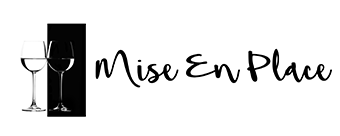Mastering the Art of Email Communication in Hotels
The Importance of Email Communication in Hospitality
The First Digital Impression
Email communication is often the first interaction a guest has with your hotel, making it a critical component of the overall guest experience. This initial digital touchpoint sets expectations and can influence a guest’s perception of the hotel. A well-crafted email can instill a sense of anticipation and excitement, while a poorly executed one can raise doubts about the quality of the hotel’s service.
Building Relationships Digitally
Effective email communication in the hospitality industry is about more than just conveying information; it’s a tool for building and nurturing relationships with guests. Personalized, thoughtful emails can foster a sense of connection, making guests feel valued and appreciated. This digital rapport can enhance guest loyalty and encourage repeat visits.
Crafting Effective Email Correspondence
The Balance of Tone and Content
Crafting the perfect email involves a delicate balance. The tone should be warm and welcoming, yet professional and respectful. The content should be concise but informative, providing guests with all the necessary details without overwhelming them. Personalization is key; addressing guests by name and referencing any previous interactions or stays can make emails feel more personal and less like generic templates.
Consistency and Brand Voice
Consistency in email communication is crucial for reinforcing the hotel’s brand voice and identity. Every email should reflect the hotel’s values and standards of service. This includes not only the language and tone used but also the visual design elements such as the hotel’s logo, color scheme, and font style. Consistent branding in emails helps to create a cohesive and recognizable image of the hotel.
Training Staff in Email Etiquette
Importance of Staff Training
Training hotel staff in effective email communication is essential. Just as staff are trained in face-to-face guest interactions, they should also be skilled in digital communication. This training should cover the basics of crafting professional emails, understanding the nuances of tone and language, and responding promptly to guest inquiries.
Best Practices and Guidelines
Developing a set of best practices and guidelines for email communication can help ensure consistency and quality across all staff interactions. This might include standardized templates for common types of emails (such as booking confirmations or pre-arrival information), guidelines on personalization, and protocols for handling complaints or special requests via email.
Leveraging Email for Guest Engagement
Pre-Arrival and Post-Stay Communication
Emails sent before a guest’s arrival and after their departure are opportunities to enhance the guest experience. Pre-arrival emails can set the tone for the stay, offer helpful information, and present opportunities for upselling services. Post-stay emails are an opportunity to thank guests, gather feedback, and encourage future bookings.
Personalization and Upselling Opportunities
Personalized email communication can be a powerful tool for upselling and enhancing the guest experience. By tailoring email content to individual guest preferences or past behaviors, hotels can offer relevant and appealing services or upgrades. This approach not only increases revenue but also enhances guest satisfaction by making them feel understood and catered to.
Measuring the Effectiveness of Email Communication
Guest Feedback and Response Rates
Monitoring and analyzing guest feedback on email communication is crucial. Positive responses, high engagement rates, and direct feedback from guests can indicate the success of your email strategies. Conversely, low engagement or negative feedback can highlight areas for improvement.
Continuous Improvement and Adaptation
The effectiveness of email communication should be regularly reviewed and adapted. This includes staying abreast of new trends in digital communication, incorporating guest feedback into ongoing strategy adjustments, and continuously training staff to ensure they are up-to-date with the latest best practices in email communication.








